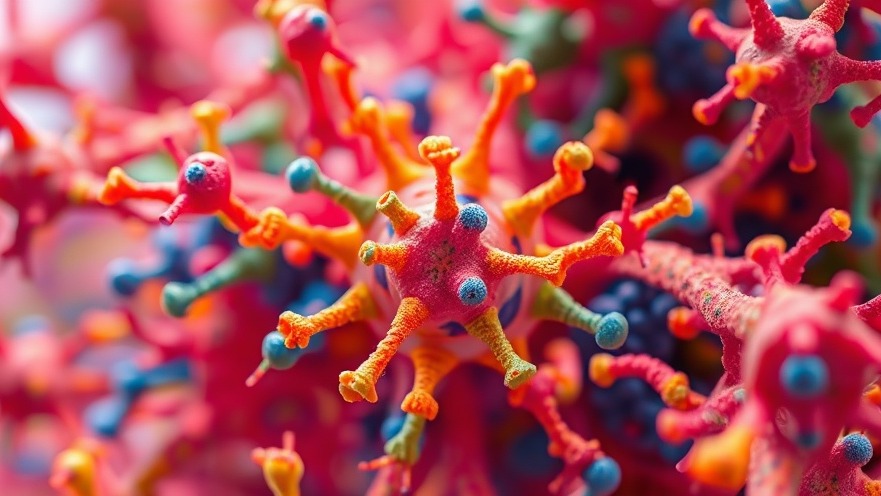
Revolutionizing Immunotherapies with AI: The Future is Here
In a groundbreaking study published in Cell, researchers have made significant strides in enhancing T-cell based immunotherapies by leveraging AI-driven protein design. This novel approach centers around the activation of the Notch signaling pathway, a pivotal mechanism for T-cell development and function. This advancement could reshape immunotherapy strategies and offer hope in tackling various cancers more effectively.
Understanding the Notch Pathway: A Backbone of T-cell Production
The Notch signaling pathway plays a crucial role in cellular differentiation and the maturation of immune cells. Traditionally, activating Notch signaling in laboratory conditions has been challenging, limiting the efficiency of T-cell production. However, the research team led by George Daley developed a synthetic ligand that encourages T-cell production in a liquid culture, an advancement that could enhance clinical applications significantly.
The Role of AI in Protein Design: Transforming Complex Challenges into Opportunities
The utilization of AI in protein engineering, particularly the Rosetta protein design tool, represents a remarkable leap forward. This technology allows researchers to create proteins from the ground up, paving the way for innovative solutions in medicine. Dr. David Baker, honored with the 2024 Nobel Prize in Chemistry, is one among many driving this revolutionary change. AI-driven strategies have unlocked new potential in optimizing the geometric configurations of proteins, leading to improved activation of the Notch pathway.
Creating Synergy: How Soluble Notch Agonists Work
The research indicated that trans-binding configurations enhance Notch synapse formation, creating a signaling hub at cell-cell junctions that amplify receptor activation. This enhancement could increase T-cell efficacy, ultimately leading to better patient outcomes in immunotherapy. Not only does this technology aid in T-cell manufacture but it also stimulates their cytotoxic functions, crucial in targeting tumor cells.
Future Predictions: What This Means for Immunotherapy and Vaccine Development
The implications of successfully activating Notch signaling are immense. Researchers anticipate that these synthetic molecules could bridge T-cells more effectively with cancer cells, amplifying T-cell killing properties while neutralizing adverse immunosuppressive environments. This innovation has the potential to elevate immunotherapy strategies, leading towards more personalized and effective treatments for patients.
Emotional and Human Element: A Vision for Better Health Outcomes
As healthcare practitioners, the desire to improve patient outcomes is fundamental. The journey of Rubul Mout, the lead scientist on this project, underscores a transformative vision—using synthetic proteins to combat immunosuppression and enhance T-cell responses. His dedication extends beyond scientific achievement; it reflects the hope of revolutionizing patient care through advanced biotechnologies.
Actionable Insights for Health Practitioners: Bridging the Gap between Research and Practice
For concierge health practitioners, understanding the intricacies of such advancements is vital. Integrating knowledge about AI in protein design and Notch signaling can improve consultations on innovative treatment options for patients. Staying informed on breakthroughs like these not only shapes practitioner expertise but also empowers educated discussions with patients about their treatment pathways.
Engagement with Emerging Technologies: The Call for Continuous Learning
The rapidly changing landscape of medical technology necessitates ongoing education and adaptation. Practitioners in the healthcare space must engage with cutting-edge research, explore these advancements, and consider how they can implement evidence-based innovations in their own practices.
In conclusion, the recent strides in harnessing AI and protein design in immunotherapy highlight a new dawn in T-cell based treatments. For practitioners keen on providing the best patient care, integrating these insights into practice can vastly improve outcomes and transform the future of immunotherapy. Stay engaged with developments like these to elevate your practice and patient health.
 Add Row
Add Row  Add
Add 




Write A Comment